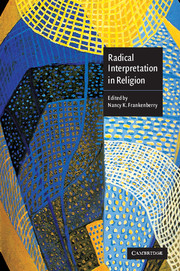Book contents
10 - Manna, mana everywhere and /‿/‿/‿
Published online by Cambridge University Press: 13 November 2009
Summary
The label, historian, is the one I am most comfortable with. That the focus of my interest is the history of religious representations and the history of the academic conceptualizations of religion does not alter this basic self-identification. Historians are a funny kind of folk. Whether of the species “new,” or of that sort thereby designated as “old,” whether global in their reach or preoccupied with one small segment of human activity, historians share an uncommon faith in the revelatory power of a telling detail, a small item which opens up a complex whole, and which, thereby, entails a larger set of intellectual consequences. Given the anecdotal nature of their enterprise, historians are truly the descendants of Herodotus, and thereby play the role of “anthropologists” in Aristotle's sense of the term: people who delight in telling tales (logoi) about other folk (anthrōpoi), in a word, gossips (Aristotle, Nichomachean Ethics, 1125a5).
Let me begin with one anecdote, taken from the remote field of the textual criticism of Greek manuscripts in which a major preoccupation is the determination of the filiation of late Byzantine copies, understood as a history of errors, based on distinctive or variant readings organized into genealogical stemmata. Günther Zuntz was working on the well-known problem of the relations between two important fourteenth-century codices of Euripides – designated L and P – from the same scriptorium. Which one was the exemplum? Which one was the dependent copy?
- Type
- Chapter
- Information
- Radical Interpretation in Religion , pp. 188 - 212Publisher: Cambridge University PressPrint publication year: 2002
- 5
- Cited by



